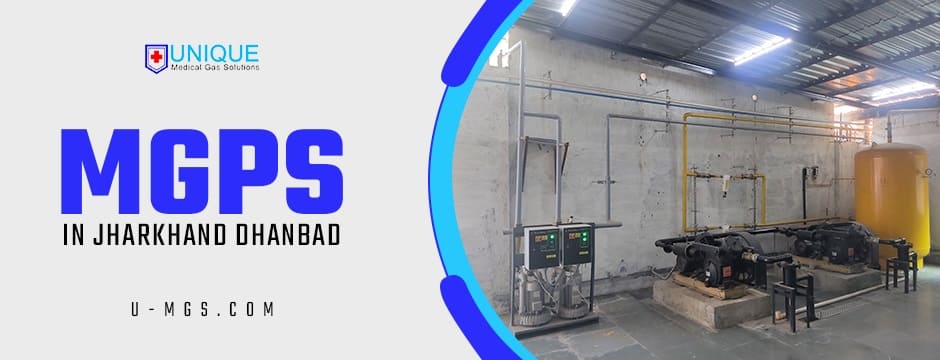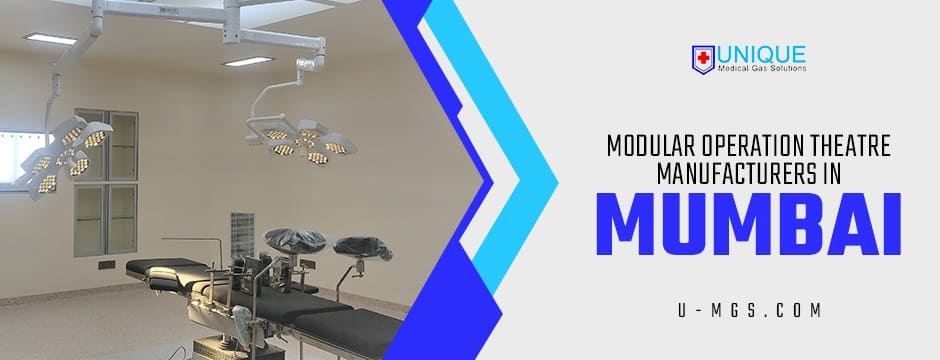In today’s fast-evolving healthcare environment, the role of infrastructure is just as important as medical expertise. One such critical yet often overlooked component is the Medical Gas Pipeline System (MGPS). Hospitals, especially in fast-developing regions like Dhanbad in Jharkhand, are facing increasing pressure to upgrade their medical systems to meet modern standards. With rising patient numbers, growing medical complexities, and the constant need for emergency care, a reliable MGPS is no longer optional—it’s a necessity.
MGPS provides essential gases like oxygen, nitrous oxide, medical air, and vacuum directly to the patient’s bedside. During emergencies or critical surgeries, a dependable MGPS can be the difference between life and death. In a city like Dhanbad, where healthcare needs are rapidly increasing due to urbanization, mining-related health issues, and population growth, investing in a robust MGPS infrastructure is a strategic decision that hospitals cannot afford to delay. This blog dives into the many reasons why hospitals need MGPS in Jharkhand Dhanbad, the risks of outdated systems, and how the right technology partner can help ensure seamless delivery of life-saving medical gases.

The Growing Demand for Quality Healthcare in Dhanbad
Dhanbad, often referred to as the ‘Coal Capital of India,’ is undergoing a significant healthcare transformation. The rising population and pollution-related ailments—especially respiratory and cardiovascular issues—have led to an increase in hospital admissions.
As a result, hospitals are required to operate at peak efficiency with little to no margin for error. MGPS helps address these challenges by providing:
- Continuous, uninterrupted gas supply
- Reduced risk of contamination
- Faster emergency response
- Streamlined operations in ICUs, OTs, and wards
In this context, a dependable MGPS ensures that patients get the support they need when they need it most.
What is MGPS and Why It’s Crucial in Hospitals?
Medical Gas Pipeline Systems (MGPS) are a network of pipelines designed to supply medical gases from a central source to various parts of the hospital. These include:
- Oxygen – for respiratory therapy and anaesthesia
- Nitrous Oxide – for analgesia and sedation
- Medical Air – used in ventilators and nebulisers
- Vacuum – for suction equipment
- Carbon Dioxide – for surgical insufflation
The system must be installed with strict adherence to healthcare safety standards (e.g., HTM 02-01, NFPA, ISO). In regions like Dhanbad, where electricity outages or ageing infrastructure are common, MGPS serves as a lifeline, ensuring essential gases are always available without manual intervention or delay.
The Risks of an Outdated or Faulty MGPS
A poorly designed or outdated MGPS in Jharkhand Dhanbad can endanger both patients and healthcare staff. Risks include:
- Leakage of gases, leading to wastage and explosion hazards
- Cross-contamination, risking patient infections
- Inconsistent supply, causing treatment delays
- Non-compliance with regulatory bodies, resulting in penalties or shutdowns
Hospitals operating without modern MGPS systems expose themselves to legal, ethical, and clinical liabilities. Investing in a reliable solution mitigates these risks and enhances patient outcomes.
Key Benefits of a Reliable MGPS System in Hospitals
A well-maintained and professionally installed MGPS offers numerous advantages:
24/7 Reliability
Gas delivery is constant, even during power failures or high patient load.
Improved Patient Safety
Eliminates contamination risks associated with portable gas cylinders and reduces the chance of medical errors.
Operational Efficiency
Staff spend less time managing gas supply logistics, allowing them to focus on patient care.
Space Optimization
Reduces clutter from cylinder storage and allows more room for essential equipment.
Regulatory Compliance
Ensures hospitals meet NABH, HTM, and other accreditation standards.
Unique Challenges for Hospitals in Jharkhand
Jharkhand’s healthcare landscape is unique in several ways:
- Geographical Disparities: Hospitals in semi-urban and rural areas often lack the resources and infrastructure for traditional gas cylinder usage.
- Pollution-Related Illnesses: High incidence of respiratory diseases due to coal mining and dust exposure increases demand for oxygen therapy.
- Limited Technical Workforce: Maintaining MGPS requires skilled professionals, who are in short supply in many Jharkhand districts.
A centralised MGPS helps overcome these issues by automating gas delivery, minimising errors, and requiring less manual handling, particularly important when trained personnel are limited.
How to Choose the Right MGPS Partner?
Choosing the right vendor is critical to ensure long-term success. Hospitals should look for:
- Proven track record in MGPS design and installation
- ISO and CE certifications
- Custom solutions tailored to hospital size and patient volume
- 24/7 maintenance and emergency support
- Integration with building management systems
Working with experts ensures the system is both efficient and future-proof.
The Future: Smart MGPS with Real-Time Monitoring

Next-generation MGPS by the modular operation theatre manufacturers in Mumbai now includes smart features such as:
- Real-time gas level tracking
- Remote monitoring dashboards
- Predictive maintenance alerts
- Automated switching systems
Hospitals in Dhanbad must begin adopting these innovations to remain competitive and efficient.
End Notes
In a rapidly evolving healthcare ecosystem, reliable MGPS in Jharkhand Dhanbad systems are non-negotiable. Whether it’s during emergency surgeries, pandemic responses, or everyday hospital operations, MGPS forms the invisible backbone that supports critical care delivery.
For hospitals in Dhanbad and across Jharkhand, partnering with an expert in medical gas infrastructure is the smart move forward. Unique Medical Gas Solutions is a trusted name in the field, offering cutting-edge MGPS design, installation, and support tailored to your facility’s unique needs. Our commitment to safety, compliance, and innovation ensures your hospital is always one step ahead in delivering high-quality care.




No comment